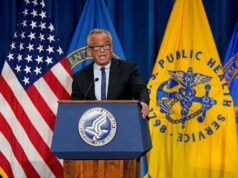
Death and taxes.
It’s the punchline to the time-worn statement “We have only two certainties in life.”
It’s also true the term “temporary tax” should be looked at with grave skepticism because most taxpayers know once a tax is approved, it rarely goes away.
Government has its way when it comes to taking your money.
Fair enough. People pay the freight for the advantage of living in a democracy and enjoy the services provided by the state.

But government should have no say in when or how to take your life. And once they get such power, they’ll never let go.
People don’t want government in their lives and the last thing we should do is give bureaucrats free entry into the process of determining our death.
Welcome to physician-assisted suicide.
You may hear it referred to in gentler terms. Medical aid in dying with its quaint acronym MAID. The end-of-life options act and others. But don’t let any of this sugarcoat it. It’s suicide. It’s aided by a physician. And its legality – not to mention morality – is very much in question.
Doctors, or most of them, understand that their oath is to do no harm while trying to help people through illness.

Of course, if you live in Delaware or Maryland, this discussion is not new to you. Lawmakers in those states, supported by well-financed political-action groups, have spent half a generation trying to clear the path to having Maryland and Delaware join 11 other states in allowing the government to flash the green light on taking your own life. They even make it easy enough that you don’t need to call it what it is. If you have cancer, it can read cancer as the cause of death on your death certificate, even if it was the little pills prescribed from a doctor who may or may not know who you are. The pills are what caused your death, but the government allows you to officially conceal that truth.
Jessica Rodgers is coalitions director for the Patients’ Rights Action Fund, a group that has been combatting assisted suicide across the United States and beyond.
“In this country, the policy varies a little bit from state to state, but the bare bones are the same, that if someone has a terminal diagnosis of six months or less to live in the states where this is legal, they can go to their physician – in some states that can be a nurse practitioner or physician assistant – and tell them they’d like a prescription for lethal drugs and then (the patient) can administer those,” Rodgers said in an interview on “Catholic Forum,” a podcast/radio program produced by the Catholic Diocese of Wilmington communications office.

“Delaware mirrors what we’ve seen in other states where there’s that six-month diagnosis, a doctor has to sign off on it and there has to be a second physician,” Rodgers said.
“What has to be noted there is the doctor doesn’t have to have a relationship with the patient, and there’s no requirement that the doctor be an expert on that prognosis or that the patient has tried any treatments that are available to them. People self-report that they don’t want to feel like a burden on their family — and they report that at a much higher rate than if they self-report pain or any future pain — as a reason that they’re seeking these prescriptions.”
The role of a physician is to prescribe the drugs and then the patients take it on their own and there are often no witnesses, and if there are witnesses, they often don’t report back what happened, Rodgers said.
“The state really washes their hands of these most vulnerable patients who have gone to their doctors, actively requesting drugs to end their life, and then there’s no oversight after that,” Rodgers said.
“We see that played out from the Oregon Department of Health. They reported more than 200 people last year, it’s unknown if they have complications, it’s unknown how long it took them to die … if there was anyone there with them … if they had capacity at the time they took these drugs or if they took them of their own free will.”

“We’re talking about creating a government policy that actively carves out a segment of the population who are already inherently more vulnerable and more scared. They have a terminal diagnosis,” Rodgers said.
“They’re facing down … these changes that happen naturally at the end of your life. And now you have a government policy that says when they feel like they’re a burden on their friends and family, a doctor will agree with them and give them drugs to end their life. The ramifications of that for society means that we stop looking at our friends and our families and our neighbors as people who need appropriate care when they express those feelings and instead start to agree with them. That’s incredibly dangerous.”
And harmful to the doctor-patient relationship.
“You start to look at your doctor and wonder, ‘Can I trust you to give me the best possible care? Can I trust you to fight for me as we are facing down this diagnosis when I can look at you and ask for legal drugs?’”
There is a rupture in the trust between doctor and patient when this becomes state-sanctioned suicide for some people.
“It is inherently discriminatory.”
Government has its say in taxes, and that’s inevitable.
It has no say in when you die.
And that’s how it should be.
No one wants pain and suffering for anyone. Opponents of this bill recognize people need help and there have been advancements in palliative care.
“There is no reason to be suffering as people near their end,” Rodgers said.
“This is not a bill that we can afford to get wrong.”
Joseph P. Owens is editor and general manager at The Dialog. Email him at jowens@thedialog.org












